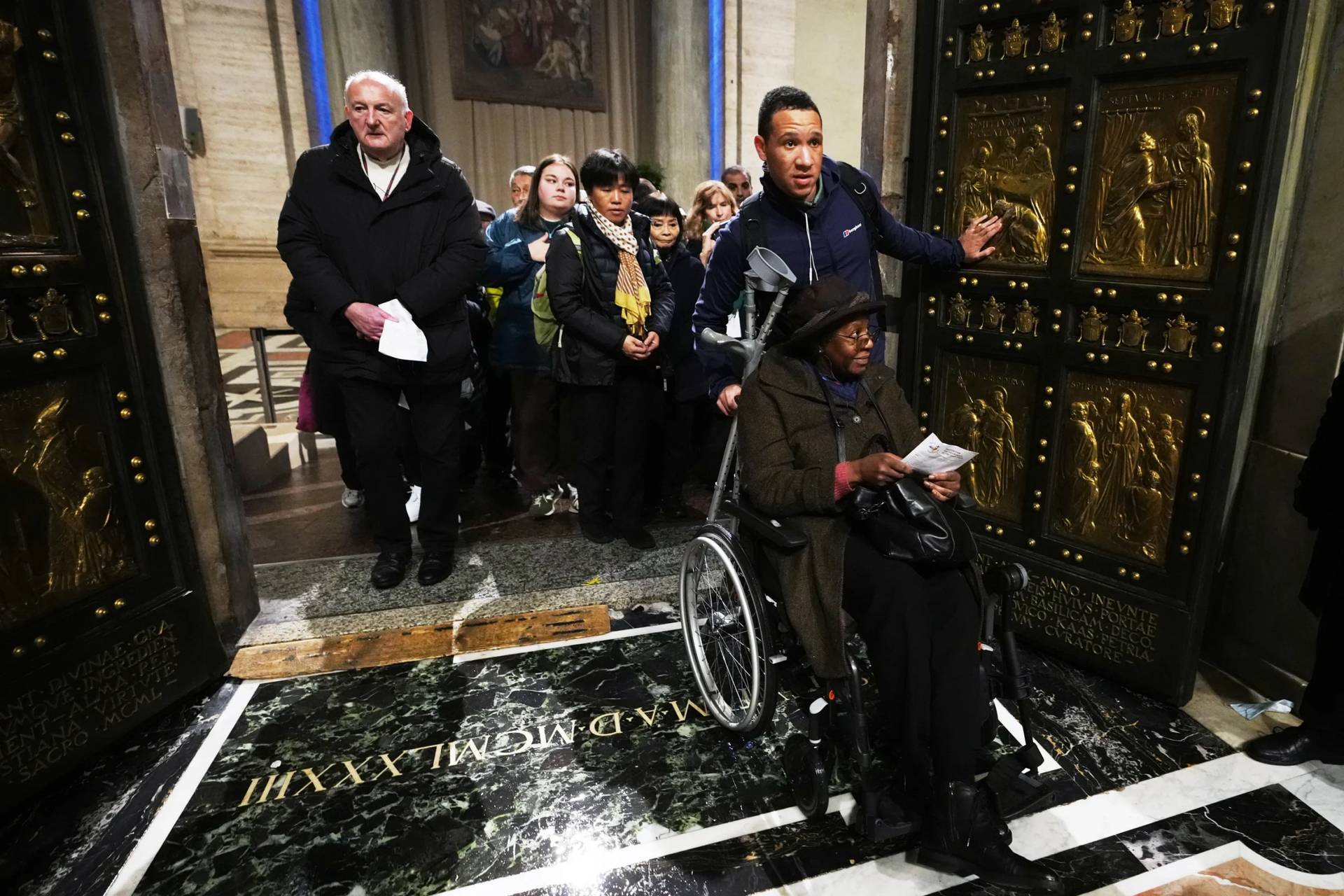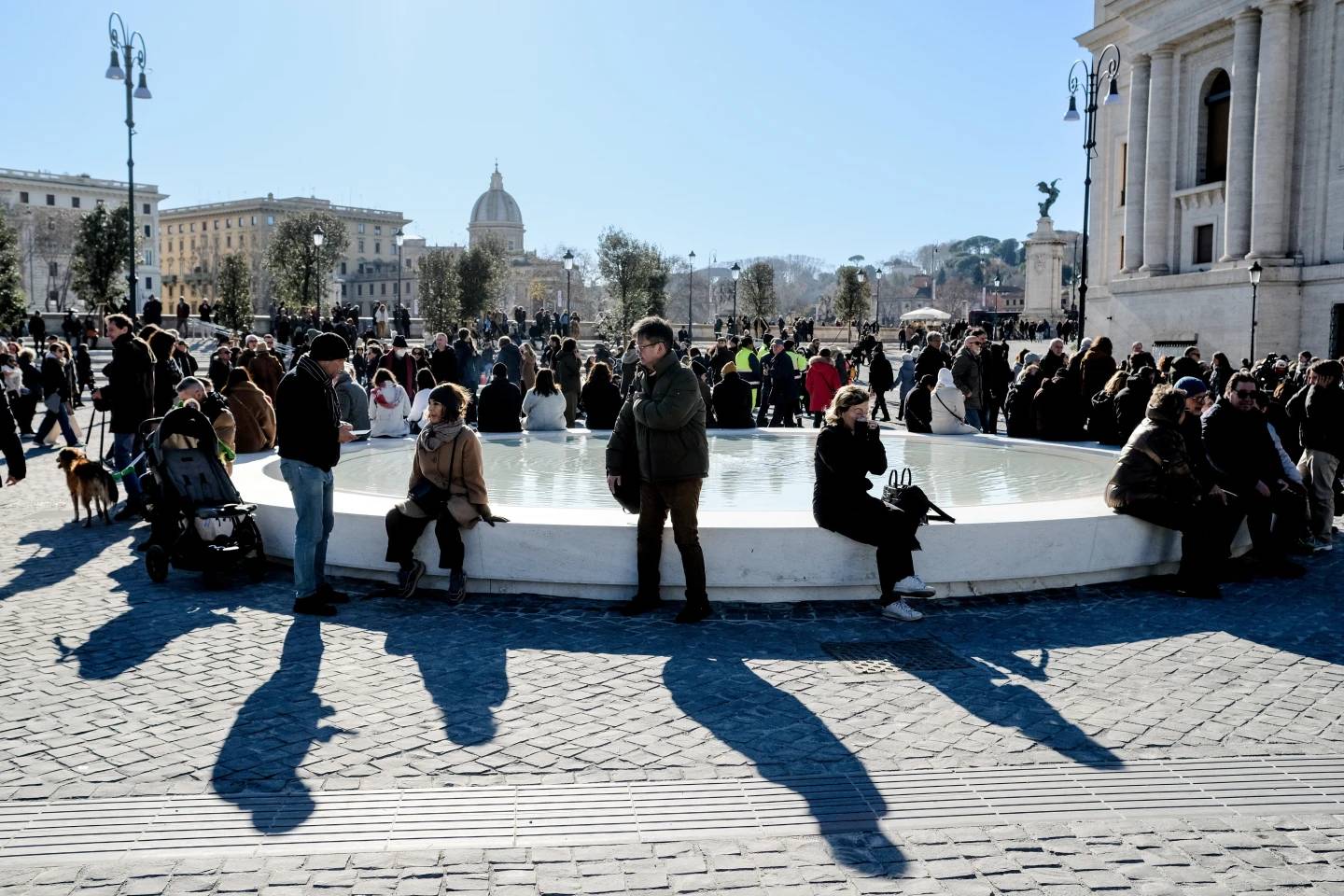ROME – A summit on clerical sexual abuse convened by Pope Francis has two primary goals, according to one of the Vatican’s new communications czars: To give bishops from around the world a clear sense of expectations in managing abuse claims, and to encourage those bishops to “touch with their hands” the suffering of abuse victims.
“They have the duty to be aware of the drama of the victims, because this is important,” Andrea Tornielli said. “You can have the best practices, the best norms, but if you don’t change your mentality, if you don’t demonstrate real compassion for the suffering of victims, you’re not able to solve the problem.”
Tornielli, a veteran Italian journalist and a longtime friend of Pope Francis even before he was elected to the papacy, was named to the new position of the Vatican’s “editorial director” last December. He spoke with Crux on Feb. 14.
While speaking freely about his understanding of the upcoming meeting for presidents of bishops’ conferences around the world, as well as heads of Eastern Catholic churches and other senior Church officials, Tornielli also emphasized that he wasn’t necessarily speaking for his boss.
“Obviously I’m trying to present the mind of the Holy See, but it is my responsibility alone and I take my responsibility if I am writing something that doesn’t work,” he said.
“I’m not writing to reflect the mind of the pope because I’m not in the mind of the pope,” Tornielli said.
With that caveat, he emphasized that the summit has a unique character because of its composition.
“This is not a technical meeting, for deciding which rules are best, or a meeting of experts,” he said. “It’s a meeting of shepherds, pastors, bishops, priests, who are engaged in announcing the message of the Gospel.”
In that sense, he said, some of the concepts often tossed around in discussions of the abuse crisis take on a different meaning.
“They’ll try to make the Church more transparent, but not only in managing sexual abuse but to be transparent in the light of the Gospel, so that the light of God can be reflected by the Church,” he said.
In concrete terms, he said that a Gospel perspective means focusing not only on crime and punishment.
“It’s not so simple to put together the reality of the Gospel with facing these kinds of terrible things,” he said. “You have to try to present the message of the Gospel of both sin and grace. You’re dealing with humanity, and you have to face the reality of sin as well as grace and forgiveness, the possibility to change one’s life.”
He also warned that no solution envisioned by the summit will ever be complete, saying “the Church knows very well that these horrible, terrible, dramatic scenes are connected with human nature, meaning nature corrupted by original sin.”
“That means you could have the best practices, the best rules, and you apply even more than the death penalty for abusers, but the human being is a sinner and people with this inclination will still act,” he said.
The veteran journalist also suggested that the Church’s learning curve in terms of responding to its abuse crisis could hold valuable lessons for other sectors of society.
“The majority of cases of abuse are inside the family,” he said. “For that reason, I think the task of the Church is to work against the abuse of minors everywhere, and we could be an example for other realities that are not so aware about this problem.”
“I think that the Church could help, not because we want to teach but because we want to present as an example our suffering and how we’re trying to manage the problem,” he said.
“This could be an example for different realities within the society, to open eyes, focus on the problem, and try to make schools, swimming pools, everywhere, safer for children, to respect the dignity of minors and not allow this kind of abuse,” Tornielli said.
Speaking of the vision for Vatican communications in light of several recent shake-ups, his new position being one of them, Tornielli said he believes the heart of the vision is to provide “a unified vision” for the various entities the department encompasses.
“There is a lot to do, but we are trying to go in the same direction … this, I think, is the real spirit of the reform,” he said.
On a personal level, Tornielli said that despite being a longtime reporter on the Vatican, he decided to take the job as an inside man because “it’s a professional challenge,” and he is impressed by the teamwork of the Vatican communications staff.
Yet while he is now on the other side of the looking-glass, so to speak, Tornielli said that fundamentally he doesn’t believe his job has changed.
“I was a journalist, I am a journalist,” he said, explaining that Vatican Media is not an entity promoting a corporate communications strategy, but “we are a group of journalists acting with our own responsibility…we are not the agency of the Vatican City State.”















